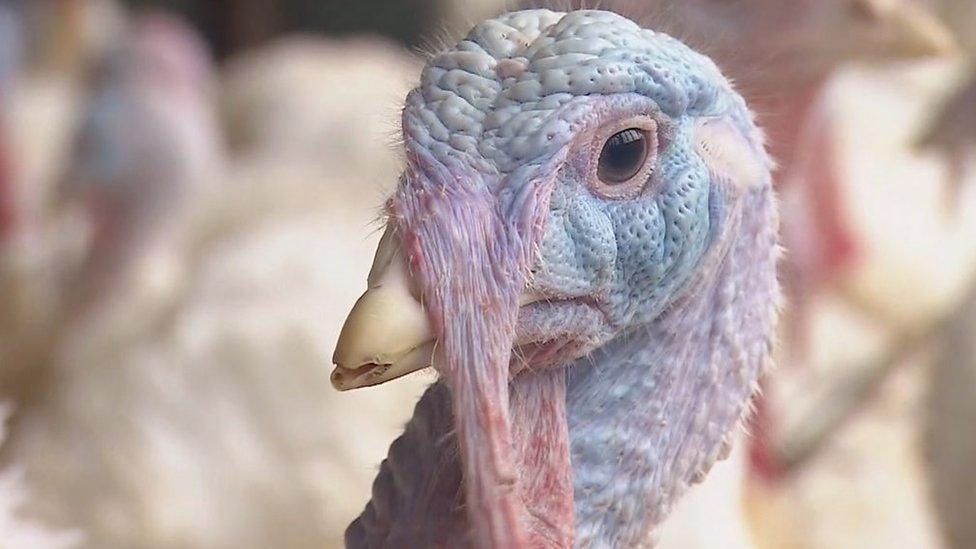Turkey farms want end to Christmas staff shortage
- Published
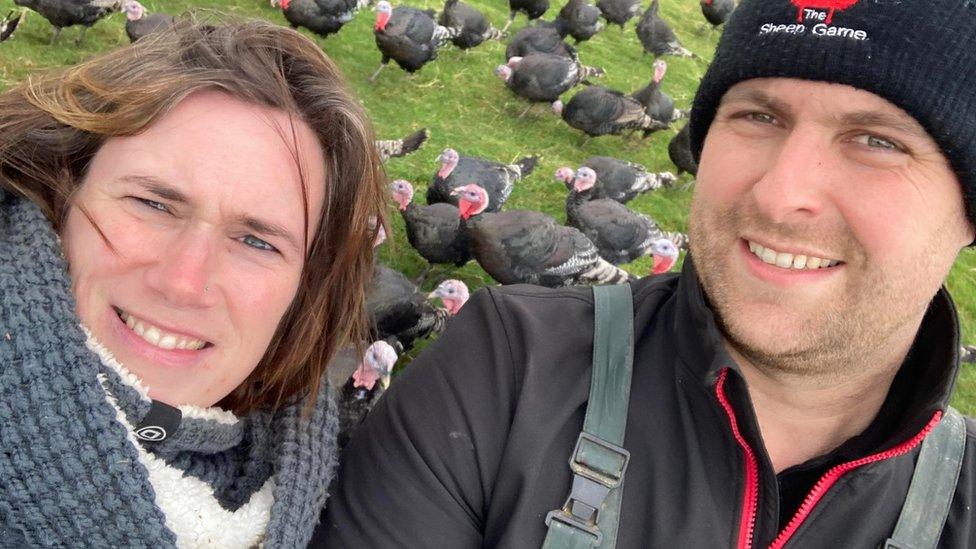
Kate and David Postance say there's a shortage of staff, not turkeys
Turkey farms and poultry processors say a long-term fix is needed to workforce shortages which could have threatened people's Christmas dinners.
Many rely on non-UK staff but availability has been hit by Brexit and the pandemic.
Getting college students involved could be part of the answer, according to one Welsh farm managing to recruit locally.
The UK government said it wanted employers to make long-term investments in the domestic workforce.
At Postance Poultry near Cardigan, Ceredigion, orders for Christmas turkeys started flooding in "much earlier than usual", according to owner Kate Postance.
'Quite enjoyable'
Soon they were completely sold out, which she puts down to media reports earlier this year raising fears about availability.
"The truth is there were always enough turkeys, it's just staffing that was an issue," she explained.
In October - under pressure from the industry - the UK government made changes to its pilot scheme offering temporary visas to agricultural workers from overseas to include 5,500 seasonal poultry staff.
However, ministers would prefer to see jobs taken up by people living in the area, something Ms Postance is managing to achieve.
"I think a lot of it is that we're willing for anybody to come and give it a go - our eldest member is in his 60s and the youngest is 14," she said.
"The days that we do are long and they're tiring - but we sing songs together and listen to the radio."
"It's actually the sort of job that can be quite enjoyable once you've got the right team around you."
She thinks school pupils and college students should be encouraged to visit farms and processing sites to try and attract them into the industry.
"Education is the key and getting young people out onto these farms to say look this is the process," she said.
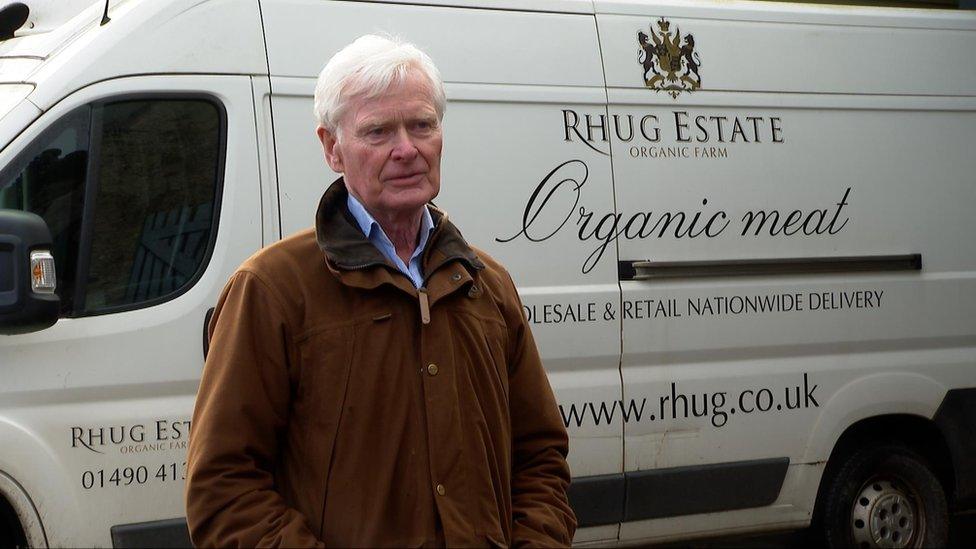
Lord Newborough says the abattoir he uses usually has 19 seasonal Christmas workers, but this year it had just one
But with a team of 11 preparing around 300 turkeys in time for Christmas, she emphasised that her business is "very small" in comparison to the major processors who've faced "a really challenging two years" due to the fallout from Brexit and Covid.
"I think we've got a very difficult situation on our hands," acknowledges Lord Newborough, who owns the Rhug Estate organic farm near Corwen, Denbighshire.
Many of its turkeys, geese and chickens are destined for the kitchens of high-end hotels and restaurants in London and Hong Kong.
'Perfect storm'
But in September, the farm was warned by the abattoir it uses in Cheshire that staffing issues meant it might not be able to process the birds in time.
"Normally at that time of year they would be employing 19 people who come back each year from eastern Europe, but this year they only had one," Lord Newborough explained.
"Eventually he managed with a lower workforce working much longer hours to get our turkeys and geese processed so we're a week to Christmas and things are ok."
But the situation has led to questions over whether the farm will continue to rear turkeys. Decisions over whether to buy in chicks need to be taken early in the new year.
"The problem has not gone away and it needs resolving fairly soon if we're to have any confidence to produce birds next year," Lord Newborough said.
The UK needs "a long term strategy" for seasonal agricultural work, he urged adding that if the problems continued it would "add up to the perfect storm of inflation and higher prices".
"We need people to come in from Europe - we've got voids to fill - anyone who thinks otherwise is not seeing the problem as we see it on the ground."
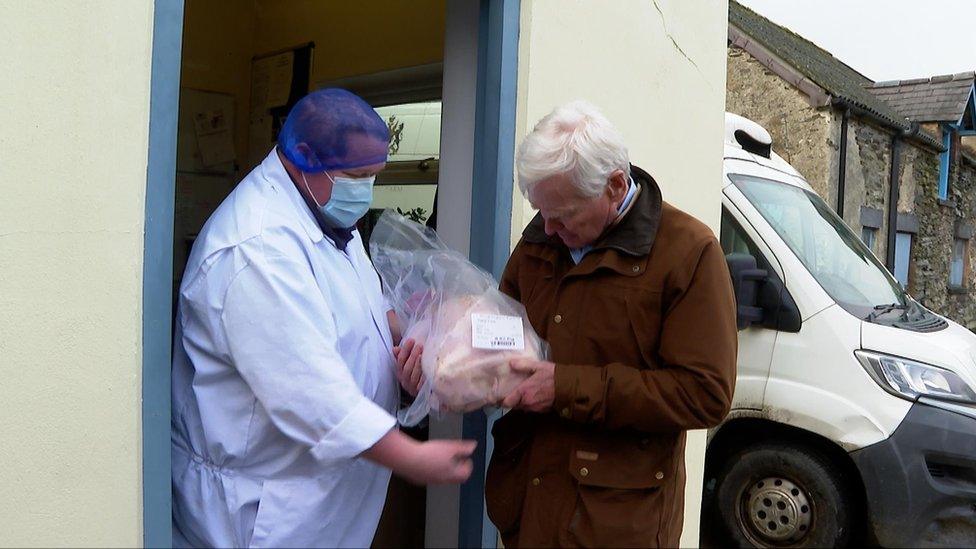
Lord Newborough says the UK needs a "long-term strategy" for seasonal agricultural work
Figures from the British Poultry Council (BPC), which represents producers of half the meat eaten in the UK suggests that more than 2600 people work in the sector in Wales.
It's an industry that's expanding here - as traditional sheep and cattle farms look to diversify.
"Technology, a focus on skills and education and a non-UK workforce" would help "to avoid jeopardising our ability to feed the nation," said BPC chairman Richard Griffiths.
He wants a new scheme to be introduced by the spring of next year to allow foreign labour to enter the UK over a period of two years.
That would give "space and time to upskill a British workforce and invest in new technologies" - including automation.
The processing sector had tried to put training schemes in place as well as "promoting (itself) as a long-term viable career for young people," added John Richards, industry development manager for Meat Promotion Wales.
"But all this takes time. We need a wider supply chain strategy to ensure people come into the sector and remain as important individuals working towards ensuring that consumers can continue to get the high quality produce from Wales that they currently receive."
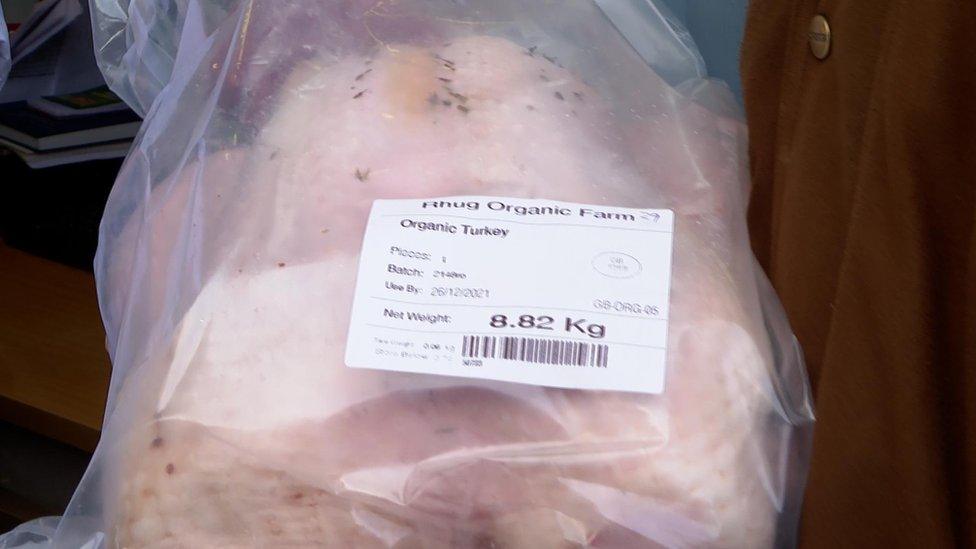
The Rhug Estate is deciding whether or not rear turkeys in the long-term
A Welsh government spokesman said visas for the poultry industry "are only a short term solution, and will not address the long-term issues the sector is facing".
"We have written to the UK government on multiple occasions and asked they consider introducing a 12 month Covid recovery visa," he said.
Skills development and training for the sector was being supported through the government's Food Skills Cymru programme, he added.
A spokeswoman for the UK government said that poultry butchers, processors and dressers were "all eligible for the skilled worker visa route under the points based (immigration) system" since December last year.
"These workers can be sponsored for up to 5 years and there is no cap on numbers," she said.
"But we also want employers to make long term investments in the UK domestic workforce, and our Plan for Jobs is helping people across the country retrain, build new skills and get back into work."

THE MUSICAL LIFE OF: Stories of the greatest ever Welsh people through song
BRAVO TWO CHARLIES : Police officers just trying to get the job done. And, broadly, failing

- Published30 September 2021
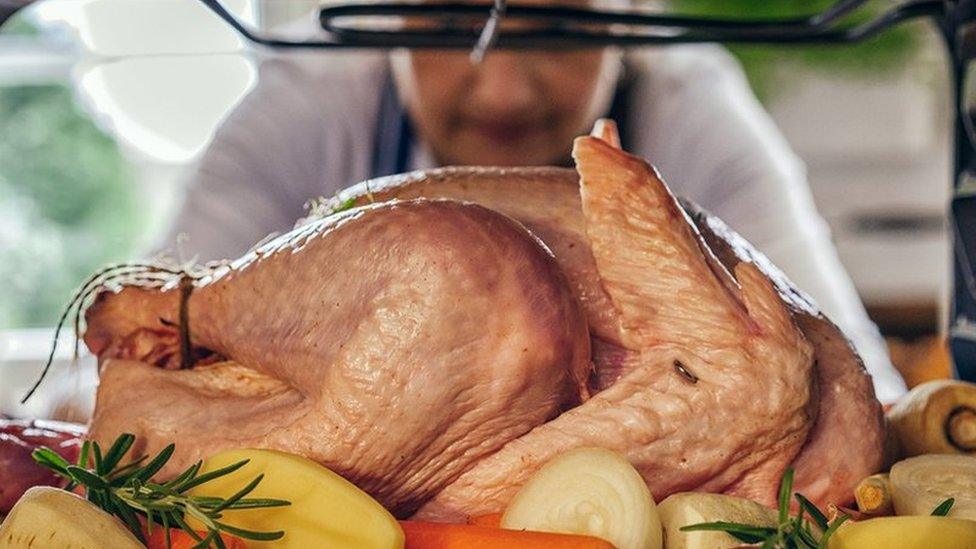
- Published27 November 2020
